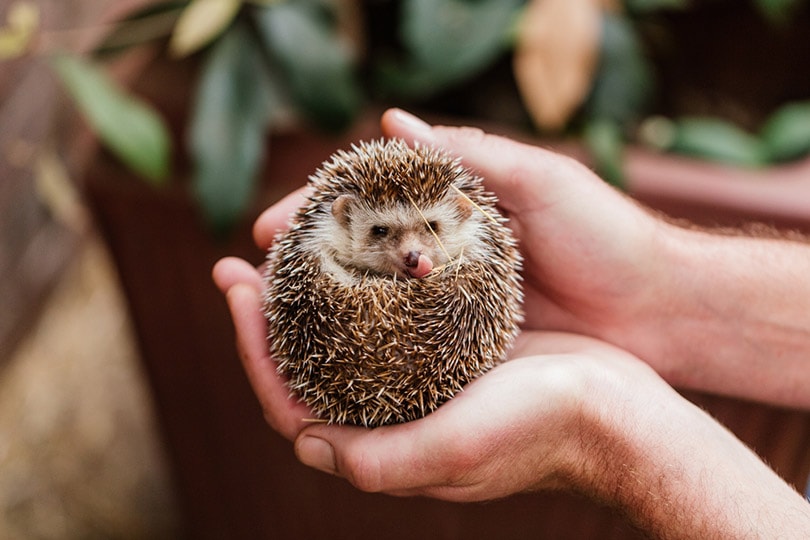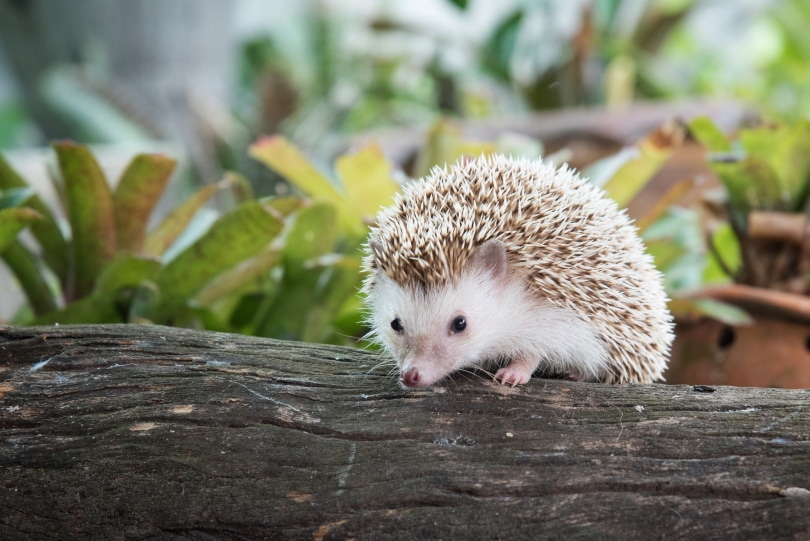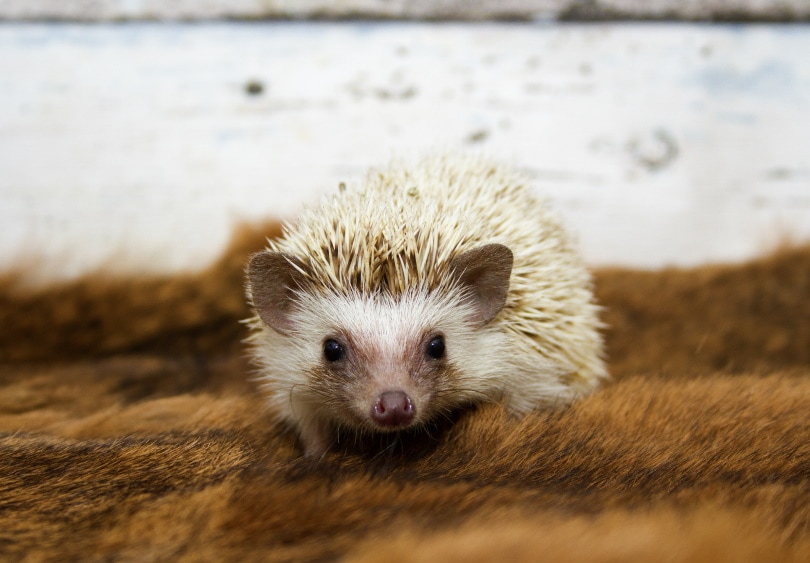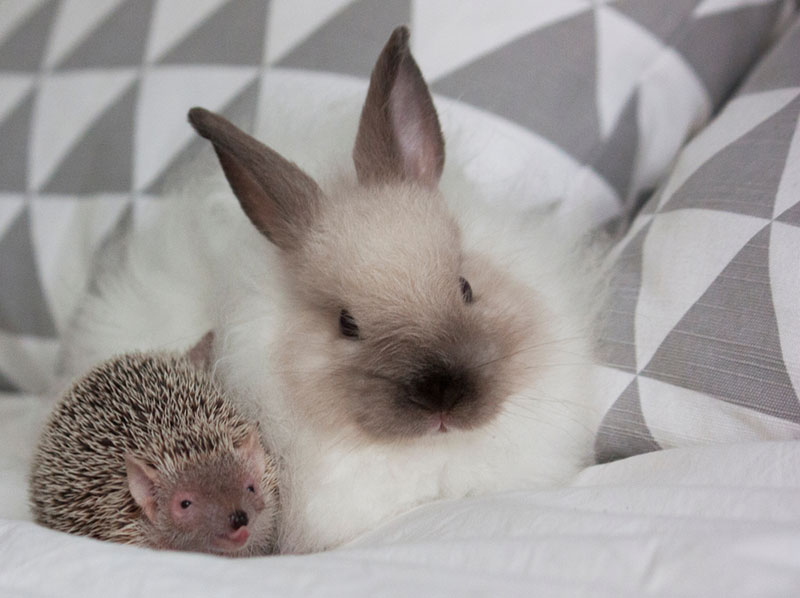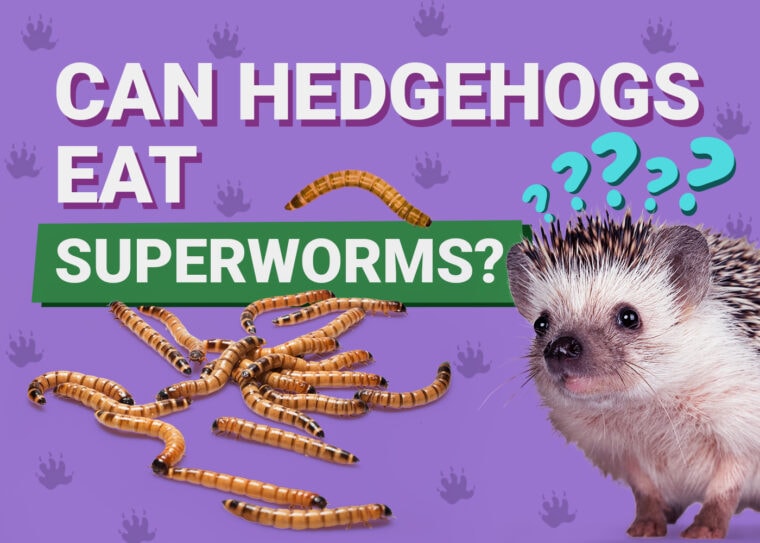
In the wild, hedgehogs feed on a variety of insects and worms, and in fact, this constitutes the main part of their diet. In captivity, many hedgehog owners feed their pets a variety of insects too, including common worms like mealworms. But what about superworms? Are superworms safe for your hedgehog to munch on?
Yes! Superworms are perfectly safe to feed your hedgehog and are a concentrated form of vital nutrients. There is a lot of speculation about the safety of feeding superworms to hedgehogs, and many hedgehog owners claim these worms can bite or even grow inside a hedgehog’s body, but this is simply not true.
In this article, we’ll look at some of the myths and facts around feeding superworms to hedgehogs, and whether or not it’s a good idea for your pet hedgehog. Let’s get started!
 What Are Superworms?
What Are Superworms?
A superworm is the larva of the darkling beetle (Zophobas morio), and is a common source of food in the pet industry, especially among reptile keepers. They are about five times larger than mealworms, and due to their chitinous shell, contain more calcium, fiber, and fat pound for pound than mealworms.
There is some confusion around mealworms and superworms at times, as there are also giant mealworms available at some pet stores that are often mistaken for, or passed off as superworms. These are not different species from regular mealworms, but they have been given a growth hormone to make them bigger and prevent them from turning into beetles.
While it’s true that superworms can bite, or more accurately, pinch, the bite is very mild and cannot even break the skin. In fact, your hedgehog is unlikely to even feel the bite from a superworm, and the bite is certainly less painful than a prick from your hedgehog’s quills! They are also much easier to raise than mealworms, although they cannot be refrigerated and fed live the same way mealworms can.
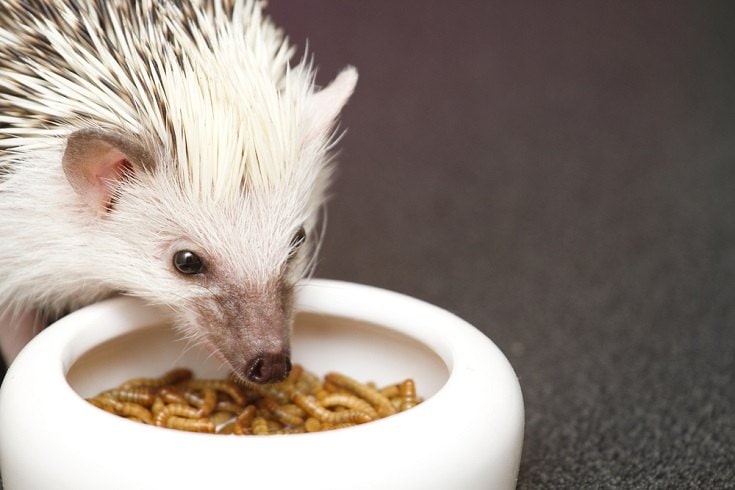
Are Superworms Good for Hedgehogs?
Yes! While superworms should certainly not replace the normal diet of your hedgehog, they are packed with nutrition and are a tasty, healthy treat. Superworms contain roughly the same protein content as mealworms and are higher in fiber and calcium, but are also higher in fat, so they should not be given too regularly.
Superworms are indeed capable of giving your hedgie a mild sting, but they are unlikely to even notice. If you’re worried, it’s best to give your hedgehog frozen, dead superworms, or squish the head just before feeding them. You can also hold them by the head when feeding them to your hedgie, as they’ll be dead by the time they reach your hedgehog’s throat.
Why Should You Feed Insects to Your Hedgehog?
In the wild, hedgehogs are naturally omnivorous animals and feed on a wide variety of insects and worms. In order for them to have a healthy diet in captivity, you’ll want to replicate their wild diet as closely as possible, which includes giving them insects. Of course, if your hedgehog is eating a nutritious, balanced diet, insects are not absolutely necessary, but they are highly recommended by most experts and your hedgie will adore them!
One of the main benefits of giving insects to hedgehogs is the inclusion of chitin—the armored outer layer on some worms like superworms and insects like crickets. This chitinous layer provides loads of protein as well as fiber for your hedgehog, improving their digestion.
It’s important to note that you should avoid giving your hedgehog wild-caught insects, as there’s a risk of pesticides or parasites, and insects raised specifically for animal consumption are best. Also, never feed an insect to your hedgehog that has died—unless you kill and freeze it yourself—as the body may have already begun decomposing and can potentially make your hedgie sick.
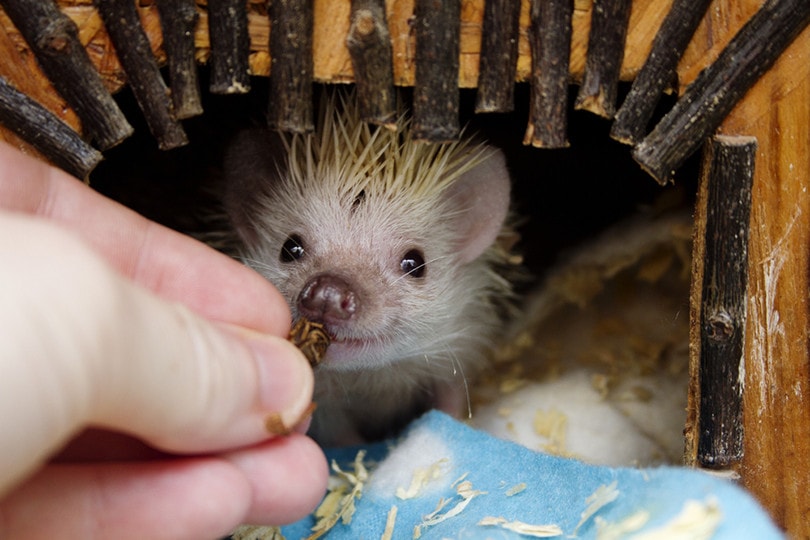
What Insects Should You Avoid Giving Hedgehogs?
Hedgehogs have a wide and varied diet in the wild, and there are many safe and nutritious worms and insects to feed your pet.
What are the Best Insects to Feed your Hedgehog?
 Final Thoughts
Final Thoughts
Hedgehogs can most certainly eat superworms, and they can actually provide your hedgie with some great nutrition. They are high in fat though and should not be given as a replacement to your hedgehog’s normal diet. Moderation is key when feeding any type of insect or worm to your hedgehog, and for the most part, superworms should be given as an occasional treat only.
Related Reads:


 What Are Superworms?
What Are Superworms?